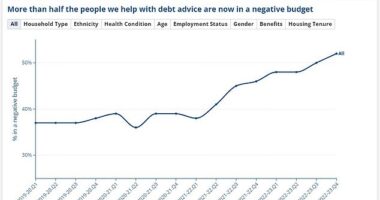
I purchased an Audi A1 from a dealership in Swansea. As I live nearly 200 miles away, the whole deal was conducted online.
I viewed the vehicle on its website and signed the purchase documentation electronically. Four days later, the car was delivered to my house on a trailer while I was away on business.
Upon my return I quickly realised I had made a mistake with the car as it isn’t really suitable for my needs. My wife then told me I could return it under the 14-day ‘cooling-off’ terms and get a refund.
I called the dealership, but it says I am now outside of the 14-day period so cannot exercise this right. Is this correct?
Terry Cartright, via email.


Second thoughts? Buying a car online qualifies as a distance sale’ meaning you have a 14-day ‘cooling-off’ period, during which you can hand the goods back and demand a full refund
Dean Dunham replies: When you purchase goods (including vehicles) online or from any location that is not the trader’s usual place of business, it is classed as a ‘distance sale’.
Distance sales are covered by the Consumer Contracts (Information, Cancellation and Additional Charges) Regulations 2013 — commonly known as the Consumer Contracts Regulations — which state that consumers have a 14-day ‘cooling-off’ period, during which you can change your mind, hand the goods back and demand a full refund.
If you don’t exercise the right within 14 days of receiving the goods, you lose it — unless the trader failed to inform you of your cooling-off rights prior to you entering into the contract.
In this respect, the Consumer Contracts Regulations place an obligation on traders to provide consumers with certain pre-contract information with distance sales, including the cooling-off period.
If the trader fails to do this, the penalty on them is that the 14-day cooling-off period extends to 12 months.
You may find it in the small print, which is easy to miss when you’re filling in forms online.
However, there is an obligation on the trader to make this information prominent so that you do not miss it — so hiding it in the small print will often not be adequate.
If you are told of your rights verbally, that’s good enough; but the trader has to be able to prove it with a recording of the conversation.
Help, Eon has called in the bailiffs
I’m in dispute with EON about my electricity bill as I do not agree with the amount it says I owe.
I have now been told my complaint has been closed and that my file has been passed to the debt collection department.
What can I do now, as I do not want bailiffs knocking at my door, but I am not paying up as the bill is wrong?
Wendy Ellison, via email.
Dean Dunham replies: If you have not already received one, ask for a ‘deadlock letter’, which is a document setting out the supplier’s final position in relation to your complaint.
Armed with this letter, you should file a complaint with the Energy Ombudsman. Make sure you provide a clear explanation as to why you think the bill is wrong, and provide any supporting evidence and information you have.
It is also a good idea to supply copies of previous bills showing how much your supply has previously cost for the same period of time. Remember that energy costs have increased in recent times.
You have not told me how far back the disputed bill dates. But if, when you received the bill, it was for a period greater than 12 months, your supplier should not have sent this to you.
You therefore cannot be charged for gas or electricity used more than 12 months ago if you have not been correctly billed for it, or informed about it via a statement of account.
This includes situations where a supplier increases your direct debit because it was set too low.
- Write to Dean Dunham, Money Mail, Scottish Daily Mail, 20 Waterloo Street, Glasgow G2 6DB or email [email protected]. No legal responsibility can be accepted by the Daily Mail for answers given.









